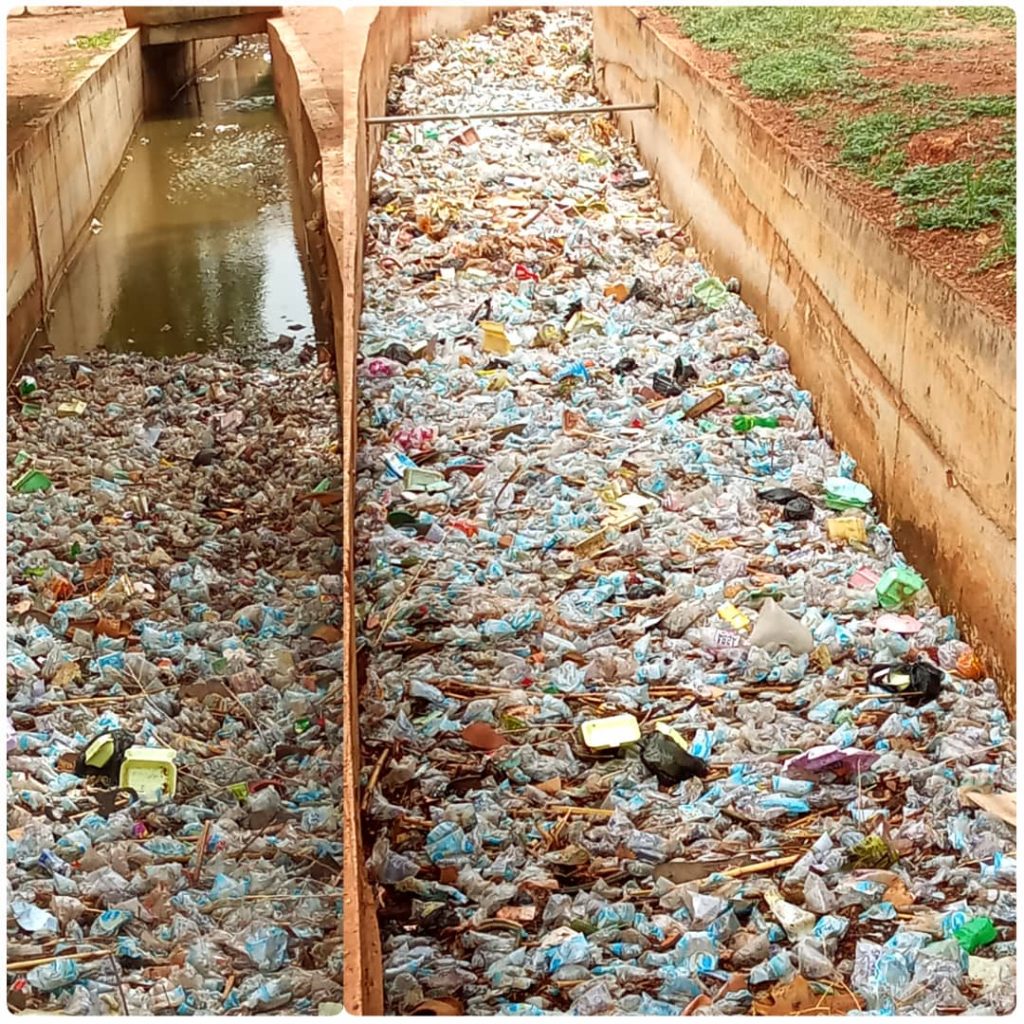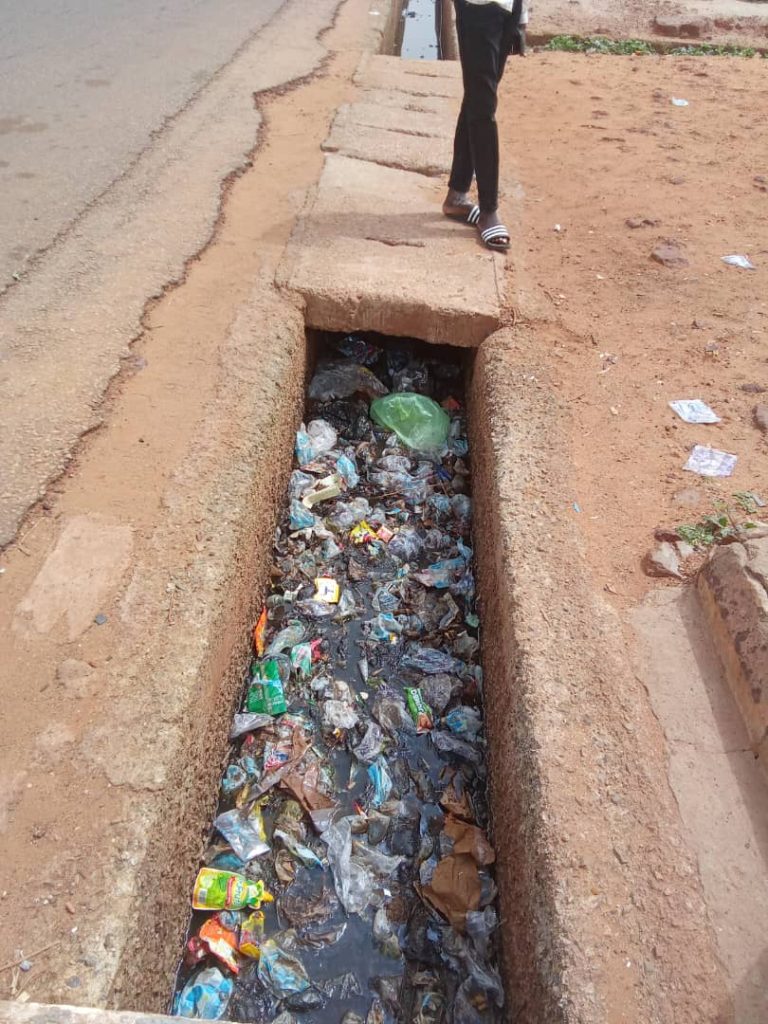In Sokoto State, blocked drainages are causing significant public health issues. Residents are frustrated as flooding prevents them from sitting outside in the evenings and increases mosquito breeding. This issue stems from blocked gutters filled with waste like plastic, nylon, sand, and paper, increased by the lack of a government cleaning system. The result is not only discomfort but significant public health risks.
Drainage is about removing water from places where there is too much. For farming, it is important to keep the soil from getting too wet, which can hurt plants. Sometimes, pipes are needed to drain water away. When drainage systems get blocked, it can really hurt public health in many ways.
Impact of blocked drainage on public health
Dr. Abdullahi Abubakar from Sokoto State’s Veterinary Hospital highlights that poor waste management and sanitation are primary causes of blocked drainages. “Our drainage systems get blocked because people don’t keep things clean. This brings in germs that can cause diseases like Cholera, Dysentery, and Hepatitis A,” he explains. He adds that mosquitoes and other bugs thrive in these conditions, spreading diseases like Malaria, Dengue Fever, and Zika Virus, particularly endangering older adults.
Environmental Health Officer, Favour Sheni Mankur from the Kofar Rini Health Center notes that blocked drainage leads to severe health issues, including waterborne diseases and flooding. She suggests regular cleaning, proper waste disposal education, and community involvement to mitigate these problems.
“When drainages get blocked, it causes big health problems like diseases from dirty water and flooding. To prevent the drainages from getting blocked, the people need to clean drainage systems regularly to remove dirt and garbage. There is also need to teach people how to throw away trash correctly. This is to ensure that the drainages do not get clogged.”
Dr. Imarana Dahiru from the World Health Organization in GH Wasagu emphasizes that cholera outbreaks in Nigeria are often linked to poor sanitation. “The cholera outbreaks we see in Nigeria come from living in dirty places with bad sanitation,” he states.
He added that improving drainage and waste management can significantly reduce such health risks. “Blocked drainage can also hurt nature and make it harder for people and animals to live safely. This kind of damage can cause health problems that last a long time.
“Children are most likely to get sick from diseases like cholera and dysentery in places with bad drainage. Their bodies aren’t as strong yet, so dirty water makes them sick easier when they play outside”, he stated.
Residents like Mrs. Audu Paula, who sells bread by the roadside near Area Commander struggle daily with blocked gutters. She told ASHENEWS that she sweeps the gutter daily but despite her efforts, it quickly fills up again with debris, attracting flies and mosquitoes. During rains, Paula said the situation worsens as the water does not get drained and ends up causing foul odors and mosquito breeding.

“I sweep the gutter in front of where I sell my bread so that customers can see and buy. But as soon as a small breeze blows, it fills up again because other gutters nearby are not cleaned. This attracts more flies in the morning and mosquitoes in the evening.
“The worst part about this gutter is when it rains,” Mrs. Paula shared. “The water doesn’t drain away; instead, it fills up to the top with all the plastic bags and starts to smell. I have to use a rake to clear it, but in the evening, the mosquitoes become too much.”
Community voices and calls for action
Suleiman Aliyu, who lives in Mabera, Sokoto State, thinks the government needs to do more to stop these problems. He thinks cleaning drainages, teaching people to throw away trash better, and fixing things by turning waste to wealth is important.
Read Also: NiMet predicts 3-day thundery, rainy, weather conditions from Sunday
Peter Godfrey said the current government in Sokoto State doesn’t do enough to keep things clean like the previous government. He thinks the government should set aside a day for everyone in the city to clean up.
Usamatu Hussaini, who lives in Kantun Sani, Sokoto State, is of the opinion that the government should build better drainage systems and ensure they are working. He also thinks it is important to teach people more about health and keep places clean. He pointed that improving drainage systems and keeping them clean can help keep everyone in Sokoto State healthy.
Abubakar Ghani, the Information Officer for the state Ministry of Environment explained that the ministry is not responsible for drainage. He mentioned that SEPA (Sokoto Environmental Protection Agency) is the agency tasked with that responsibility. He stated that he could not comment on the issue because he does not know how the agency works.
Efforts made to get the Sokoto Environmental Protection Agency as at the time of filing this reports as the Information Officer was not on seat when the Reporter visited the Agency as every other official said they will not speak until he sees the Information Officer.
Repercussions of blocked drainage systems on public health
Increased Disease Transmission: Stagnant water in blocked drains becomes a breeding ground for mosquitoes. They spread diseases such as Malaria, Dengue Fever, and Zika Virus. Additionally, the accumulation of waste attracts flies that can transmit diseases like cholera, dysentery, and Hepatitis A.
Waterborne Diseases: Poor drainage leads to waterlogging and the contamination of water sources. This increases the risk of diseases such as cholera and dysentery. These diseases are especially dangerous for children, whose immune systems are less developed.
Long-Term Health Impacts: Consistent exposure to unsanitary conditions can lead to chronic health issues and degrade the overall quality of life. Elderly individuals are particularly vulnerable to the health risks posed by poor drainage.
A way forward
Addressing drainage issues and maintaining clean environments are crucial for protecting public health and improving the quality of life for residents in Sokoto State. The community’s call for more government action highlights the urgent need for regular maintenance, public education on sanitation, and infrastructure improvements. By working together, the government and residents can create a healthier, safer environment for all.


